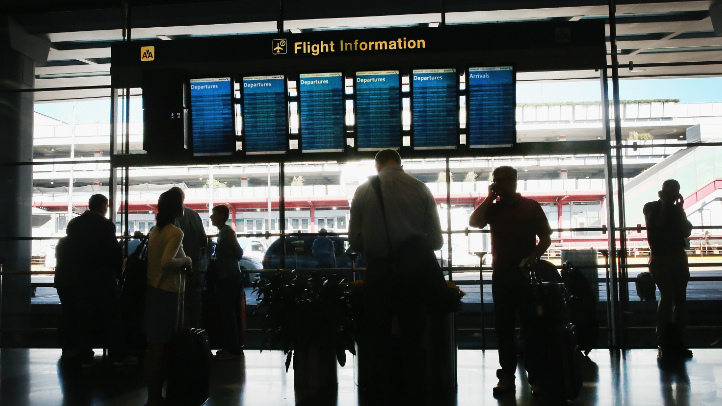This was Rod Blagojevich's big chance -- his argument for a reduced sentence or, his hope, a new trial.
Though his wife Patti Blagojevich was present at the court Friday, the former governor was still at his prison thousands of miles away in Englewood, Colo.
His attorney Len Goodman argued before the three judges, once again, that Blagojevich did not commit a crime when he proposed a political horse trade for the Barack Obama senate seat, and that he had been unfairly barred from arguing that he thought everything he had done was legal.
He asked the judges to toss Blagojevich's corruption convictions.
Short of that, Blagojevich's defense team hopes the court will at least agree to reduce his 14-year prison term — one of the longest sentences ever imposed for political corruption in a state where four of the last seven governors have ended up in prison.
FBI agents arrested then-Gov. Blagojevich five years ago this week, on Dec. 9, 2008. A jury convicted him of wide-ranging charges in 2011, including for trying to profit from his power to name someone to President Barack Obama's old U.S. Senate seat.
Friday's arguments are an opportunity for judges to fire questions at the defense and prosecution. They've already seen the 100-page appeal defense lawyers filed in July and the government's 169-page response that was filed last month.
Local
Blagojevich's appeal includes a laundry list of alleged errors by trial Judge James Zagel. It says he allowed one juror — referred to only as Juror No. 174 — to remain on the panel during the second and decisive trial, even after he said about Blagojevich during jury selection, "I just figured him, possibly, to be guilty."
On his face, Judge Frank Easterbrook seemed to be highly critical of the government's case. He took prosecutor Debra Riggs Bonamici to task, asking if there had ever been a case in history with facts like this one. He even cited the famous case where California Governor Earl Warren delivered his state's delegation for Dwight Eisenhower in 1952, in exchange for a seat on the Supreme Court, noting that if the government's rules were applied in both cases, both Warren and Ike would have been sent to jail.
But the judges asked tough questions of both sides, and very often these types of arguments come down to very finite questions of law.
The panel isn't expected to issue a ruling on Blagojevich's appeal for at least several weeks. If it goes against him, he could try to appeal to the nation's highest court, though there's no guarantee the Supreme Court would even agree to hear his case.
In their November filing, prosecutors balked at the notion that what Blagojevich did was commonplace, writing that, "A public official who sells his office engages in crime, not politics."
They also addressed the allegedly biased juror. A partially formed opinion, they noted, isn't in itself grounds for booting someone from a jury, provided that would-be jurors assure a judge they will decide a verdict based only on evidence at trial. Juror No. 174 gave that assurance.
Blagojevich's appeal seems to face long odds.
Appellate judges at the 7th Circuit have a reputation for rarely quashing convictions unless a lower court's errors are egregious. According to 2012 court statistics, its judges reversed lower court findings in only around 15 percent of appeals.



